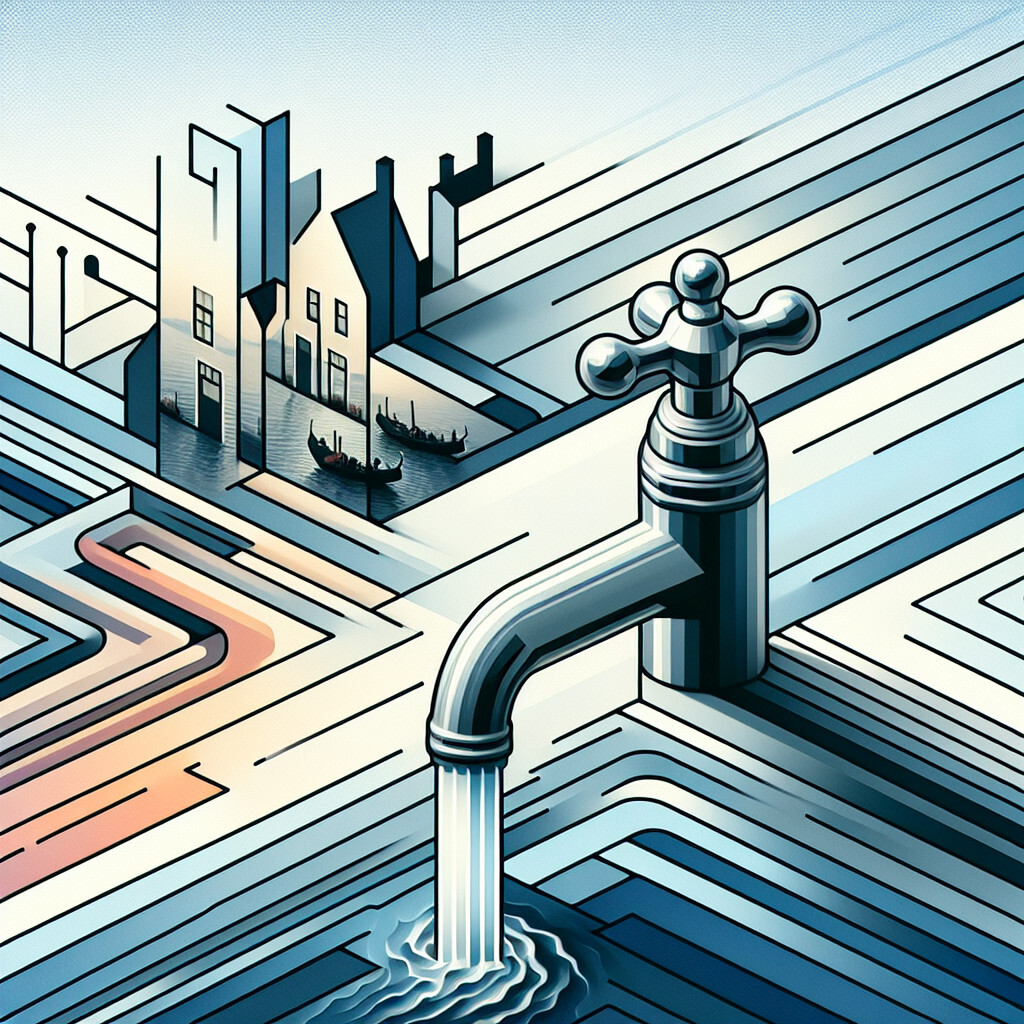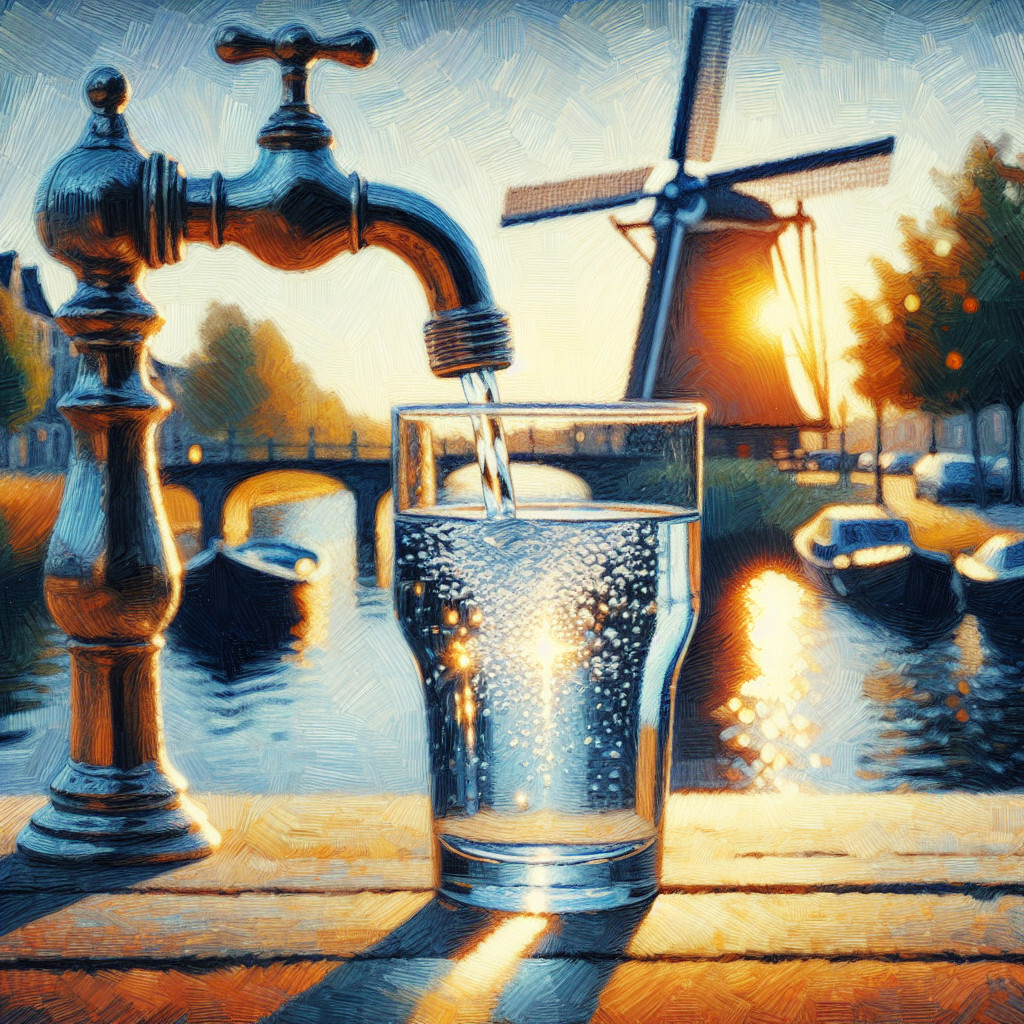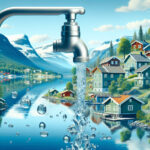-
Table of Contents
“Netherlands’ Tap Water: Exceptionally Clean, Safe, and Sustainable.”
Introduction

The tap water in the Netherlands is of high quality and is considered among the safest and cleanest in the world. It undergoes rigorous testing and treatment processes to ensure it meets strict safety standards. The water is sourced from lakes, rivers, and groundwater, and is treated to remove any impurities or harmful substances. It is so clean that it is often compared to bottled water in terms of quality. Therefore, it is perfectly safe to drink straight from the tap in the Netherlands.
Understanding the Quality of Tap Water in the Netherlands
The Netherlands, a country known for its picturesque landscapes, vibrant tulip fields, and iconic windmills, is also renowned for the exceptional quality of its tap water. The Dutch tap water is not only safe to drink but is also considered one of the best in the world. This is a result of the country’s stringent water management policies, advanced purification techniques, and continuous monitoring of water quality.
The Dutch government places a high priority on water quality and safety. The Netherlands has a comprehensive set of laws and regulations in place to ensure the quality of its tap water. The Dutch Drinking Water Act, for instance, sets strict standards for the quality of drinking water. These standards are based on the guidelines provided by the World Health Organization and are even stricter than those set by the European Union. The Dutch water companies are legally obliged to meet these standards and are subject to regular inspections by the Dutch Drinking Water Inspectorate.
The quality of tap water in the Netherlands is also a result of the country’s advanced water purification techniques. The Dutch water companies use state-of-the-art technology to purify the water. The process involves several stages, including coagulation, sedimentation, filtration, and disinfection. The water is also treated to remove any harmful substances, such as heavy metals, pesticides, and bacteria. The end result is clean, safe, and tasty tap water.
In addition to the stringent regulations and advanced purification techniques, the quality of tap water in the Netherlands is continuously monitored. The Dutch water companies carry out regular tests to check the quality of the water. These tests are conducted at various stages of the water supply process, from the source to the tap. The results of these tests are publicly available, providing transparency and reassurance to the consumers.
The Dutch tap water is not only of high quality but is also environmentally friendly. The production and distribution of tap water require less energy and produce fewer greenhouse gas emissions compared to bottled water. Moreover, drinking tap water reduces plastic waste, as it eliminates the need for single-use plastic bottles. Therefore, by drinking tap water, the Dutch people are not only ensuring their health but also contributing to the protection of the environment.
Despite the high quality of tap water, some people in the Netherlands still prefer to drink bottled water. This is often due to misconceptions about the safety and taste of tap water. However, several blind taste tests have shown that most people cannot distinguish between tap water and bottled water. Moreover, tap water in the Netherlands is significantly cheaper than bottled water, making it a cost-effective choice.
In conclusion, the tap water in the Netherlands is of exceptional quality, thanks to the country’s stringent regulations, advanced purification techniques, and continuous monitoring. It is safe, tasty, environmentally friendly, and cost-effective. Therefore, whether you are a resident or a visitor, you can confidently drink the tap water in the Netherlands.
The Process Behind the Cleanliness of Dutch Tap Water
The Netherlands is renowned for its high-quality tap water, which is considered among the cleanest and safest in the world. This exceptional standard is achieved through a meticulous process that ensures the water’s cleanliness and safety for consumption. The Dutch tap water’s purity is a testament to the country’s commitment to public health and environmental sustainability.
The process behind the cleanliness of Dutch tap water begins with the careful selection of water sources. The Netherlands primarily relies on two sources for its tap water: groundwater and surface water. Groundwater, which accounts for about 60% of the tap water, is extracted from wells dug deep into the earth. This water is naturally filtered through layers of sand and gravel, which removes impurities. Surface water, on the other hand, is sourced from rivers and lakes and accounts for the remaining 40%.
Once the water is sourced, it undergoes a rigorous purification process. Groundwater, due to its natural filtration, requires less treatment than surface water. It is aerated to remove dissolved iron and manganese, and then filtered again to eliminate any remaining particles. Surface water, being more susceptible to pollution, undergoes a more complex treatment. It is first pre-treated with coagulants to remove large particles, then subjected to a series of filtration processes, including sand filtration, activated carbon filtration, and membrane filtration. These steps effectively remove bacteria, viruses, and other harmful substances.
The Dutch water companies also add a disinfection step to the treatment process. This is usually done using UV light or ozone, which are effective in killing any remaining microorganisms without leaving harmful residues. The water is then stored in clean reservoirs before being distributed to households and businesses.
The quality of Dutch tap water is continuously monitored to ensure it meets the stringent standards set by the Dutch Drinking Water Act. This legislation stipulates that tap water must be safe to drink at all times and places. Water companies conduct regular tests on the water’s microbiological, chemical, and radiological parameters. If any anomalies are detected, corrective measures are immediately taken.
The Dutch approach to tap water treatment is not only focused on ensuring water quality but also on sustainability. The Netherlands is a pioneer in implementing innovative and environmentally friendly water treatment technologies. For instance, the use of UV light and ozone for disinfection reduces the need for chemical disinfectants. Moreover, many Dutch water companies are investing in energy-efficient treatment processes and exploring ways to recover valuable resources from wastewater.
In conclusion, the cleanliness of Dutch tap water is a result of a meticulous process that involves careful source selection, rigorous treatment, continuous monitoring, and a commitment to sustainability. This process ensures that the tap water in the Netherlands is not only safe to drink but also contributes to the country’s environmental goals. So, the next time you turn on the tap in a Dutch home or restaurant, you can be assured that you are drinking some of the cleanest and safest water in the world.
Health Benefits of Drinking Tap Water in the Netherlands
The Netherlands, a country known for its picturesque landscapes, tulip fields, windmills, and cycling routes, is also renowned for the exceptional quality of its tap water. The tap water in the Netherlands is not only safe to drink but is also of superior quality, often surpassing the quality of bottled water. This is due to the stringent regulations and advanced purification processes that the country employs to ensure the safety and quality of its tap water.
The tap water in the Netherlands is sourced primarily from groundwater and surface water. The water undergoes rigorous treatment processes to remove any impurities and harmful substances, ensuring that it is safe for consumption. The Dutch water companies are responsible for the treatment and distribution of tap water, and they adhere to strict quality standards set by the Dutch Drinking Water Act. These standards are even stricter than those set by the European Union for bottled water, which is why Dutch tap water often surpasses the quality of bottled water.
Drinking tap water in the Netherlands offers numerous health benefits. Firstly, it provides essential minerals such as calcium and magnesium, which are necessary for various bodily functions. These minerals are naturally present in the water and are retained during the purification process. Therefore, drinking tap water in the Netherlands can contribute to meeting the daily recommended intake of these essential minerals.
Secondly, tap water in the Netherlands is free from harmful substances such as microplastics, which are often found in bottled water. Microplastics are tiny particles of plastic that can enter the body when consumed and can cause various health problems. By drinking tap water, you can avoid the risk of consuming these harmful substances.
Moreover, tap water in the Netherlands is also beneficial for dental health. The water is fluoridated, which means it contains a certain level of fluoride. Fluoride is a mineral that helps prevent tooth decay by making the tooth more resistant to acid attacks from plaque bacteria and sugars in the mouth. It also reverses early decay. Thus, drinking tap water in the Netherlands can contribute to maintaining good dental health.
In addition to the health benefits, drinking tap water in the Netherlands is also environmentally friendly. The production and transportation of bottled water consume a significant amount of energy and contribute to carbon emissions. On the other hand, tap water has a much lower environmental impact as it is sourced locally and does not require packaging or transportation.
In conclusion, the tap water in the Netherlands is not only safe to drink but also offers numerous health benefits. It provides essential minerals, is free from harmful substances, and contributes to dental health. Moreover, it is environmentally friendly. Therefore, whether you are a resident or a visitor, you can confidently drink the tap water in the Netherlands and enjoy its many benefits.
Environmental Impact of the Netherlands’ Tap Water System
The Netherlands, a country known for its innovative water management systems, has a tap water system that is not only efficient but also environmentally friendly. The quality of tap water in the Netherlands is among the highest in the world, and its production and distribution have a minimal environmental impact. This is due to the country’s stringent regulations, advanced technology, and commitment to sustainability.
The Netherlands’ tap water system is primarily sourced from groundwater and surface water. Groundwater, which accounts for about 60% of the supply, is naturally filtered through layers of sand and gravel, reducing the need for chemical treatment. Surface water, on the other hand, is treated using advanced purification processes that minimize the use of chemicals and energy. The Dutch water companies are continuously investing in research and development to further improve these processes and reduce their environmental footprint.
One of the key factors contributing to the low environmental impact of the Netherlands’ tap water system is the efficient use of energy. The energy consumption of Dutch water companies is among the lowest in Europe, thanks to the use of energy-efficient technologies and the recovery of energy from the water treatment process. For instance, some water companies use the heat generated during the treatment process to warm their buildings, while others produce biogas from the sludge resulting from water purification.
Another important aspect is the reduction of water loss. In the Netherlands, the percentage of water lost during distribution is less than 5%, which is significantly lower than the global average. This is achieved through regular maintenance of the distribution network and the use of advanced leak detection systems. By minimizing water loss, the Dutch water companies not only save valuable resources but also reduce the energy and chemicals needed for water treatment.
The Dutch water companies are also committed to reducing their carbon emissions. They have set ambitious targets to become carbon-neutral by 2025, and they are making significant progress towards this goal. Some of the measures they are taking include the use of renewable energy sources, the reduction of energy consumption, and the capture and reuse of greenhouse gases produced during the water treatment process.
Furthermore, the Netherlands’ tap water system has a positive impact on public health and the environment by reducing the consumption of bottled water. The high quality of tap water in the Netherlands encourages people to drink it instead of bottled water, which has a much higher environmental impact due to the production and disposal of plastic bottles. According to a study by the Dutch water research institute KWR, if all Dutch people drank only tap water, it would save about 70,000 tons of CO2 emissions per year.
In conclusion, the Netherlands’ tap water system is a model of sustainability and efficiency. It provides high-quality water with minimal environmental impact, thanks to the use of advanced technology, stringent regulations, and a strong commitment to sustainability. The Dutch water companies are continuously striving to improve their performance and reduce their environmental footprint, setting an example for other countries to follow.
Q&A
1. Question: Is tap water in the Netherlands safe to drink?
Answer: Yes, tap water in the Netherlands is considered some of the safest and cleanest in the world.
2. Question: How is the taste of tap water in the Netherlands?
Answer: The taste of tap water in the Netherlands is generally fresh and clean, due to the high standards of water treatment.
3. Question: Is the tap water in the Netherlands treated with chemicals?
Answer: Yes, like most countries, the Netherlands treats its tap water to ensure safety. However, the amount of chlorine used is very low, which contributes to the good taste.
4. Question: Can I use tap water for cooking in the Netherlands?
Answer: Yes, tap water in the Netherlands is safe for all uses, including drinking, cooking, and brushing teeth.
Conclusion
The tap water in the Netherlands is of high quality, safe, and clean to drink, being subjected to stringent controls and regulations. It is considered among the best in the world.






